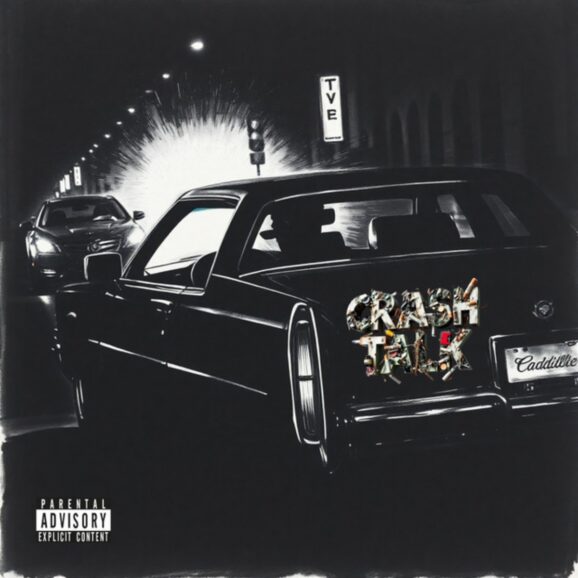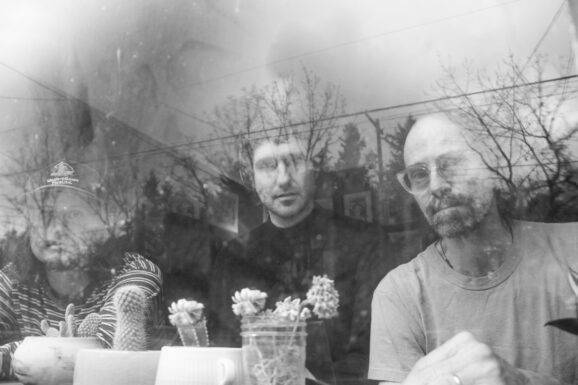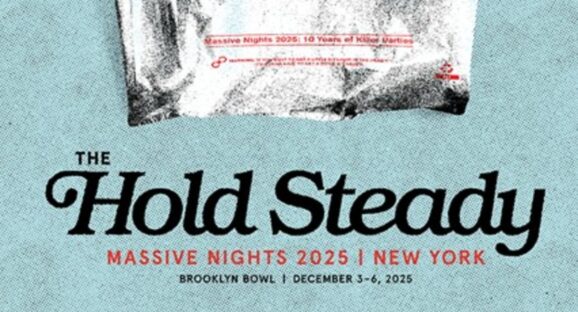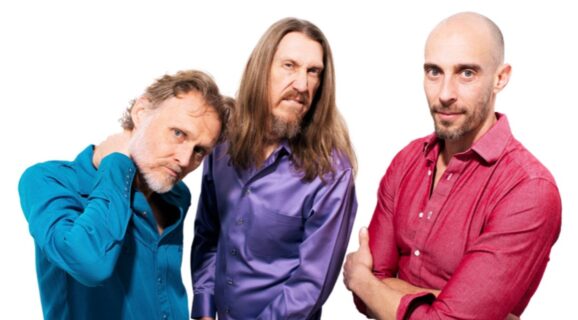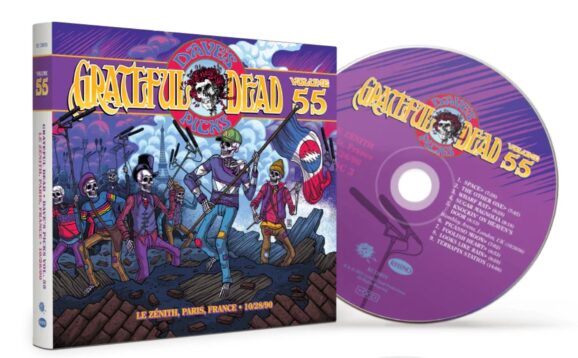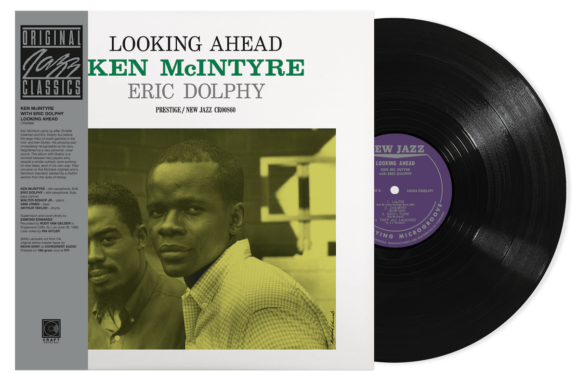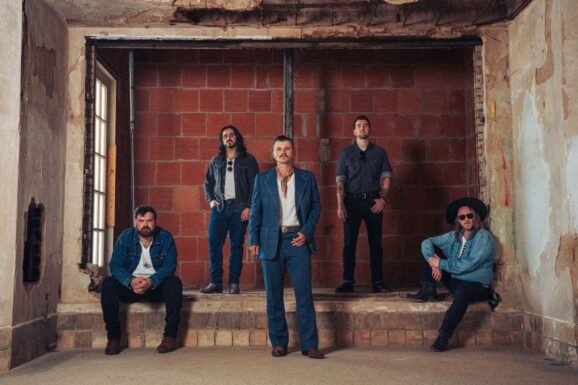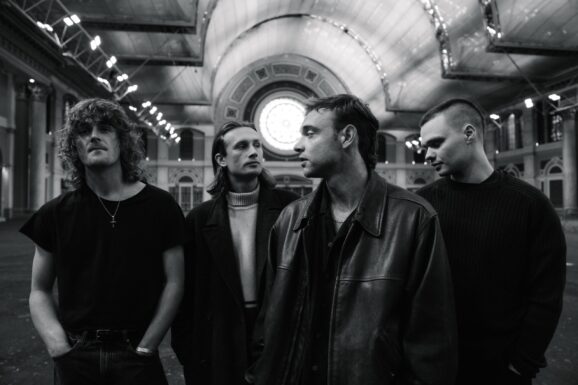In recent years, music that was released decades ago is being introduced to a whole new generation of avid music fans. With the help of streaming services, bands that have influenced chart-topping acts for years are getting their well-deserved flowers, and no group deserves them more than the pioneer punk rockers Dead Kennedys. Their uncontrolled take on punk has gone on to influence the most popular acts of the past few decades. Longevity is one of the most difficult accomplishments an artist can achieve, and with over 40 years removed from their seminal debut, 1980’s Fresh Fruit for Rotting Vegetables, their influence is stronger than ever.
In celebration of the album’s four-decade reign over the punk genre, guitarist East Bay Ray (Raymond John Pepperell) teamed up with super-producer Chris Lord-Alge to rework their monumental debut. Glide had the absolute pleasure of sitting down with East Bay Ray to discuss the process of remixing the album and how he feels about the legend that surrounds it. Check out the full interview below;
You mentioned the challenge for you and the remix was keeping the album true to its original sound, but improving the sonic clarity of it. Did any of the songs come easy for you? Was there anything that was challenging about that?
Well, it was more challenging for Chris Lord-Alge. You know, it was recorded with 16 tracks and I mean, I wrote a little essay about all the technical problems that Collins and I had working on it. But I guess I think the thing is actually the band is kind of hard to mix in the sense that, you know, my guitar is in the mid-range, the snare is in the mid-range, and the voices are in the mid-range. And everybody in the band, we all like have to sound aggressive. So they kind of all want the same space, even though we’re like just a four-piece, it’s not as easy as it seems. It’s hell. But I think Christopher and LG did a good job of capturing the clarity of the instruments. And, you know, I think you can hear the parts a little better. Still rough, but it still rocks out.

What was it like working with Chris Lord-Alge and what made you go with him to remix the album?
Well, that was our manager’s idea. House and I had to think of engineers to mix it. And our manager said, let me hear from some, you know, some of the top people and see what they think. (Alge) was a fan of the band. And because you know, there was the option of do I do it DIY again?
I saw that he was a fan of the band. And because we were DIY and not on a major label, he gave us a very, very good rate. Unfortunately because of COVID, we all said I could not be in the room with them, which would have been much worse, and we did it over the internet. So it was a very slow process. You know you could do a mix and send it to us and then we make some basically fine-tuning and adjustments.
How long did it take overall, the whole process of mixing?
Well, I guess, I mean, one of the problems is we had the 16 tracks that were transferred to digital like a number of years ago and the person did not document the tracks like what was where and all that. So when we sent the first song, which is L’oreal’s, he said “what is this? What does all this mean?” And then we realized that it was not clear what was where and what was right, so I spent a number of months I can’t remember exactly, but actually listening to the original record and then seeing which tracks were used for which parts, because there would be, like, multiple guitar parts and multiple vocal parts. And it was an art, which ended up on the final mix. I was really good at that. You know, we would have the original mix-up and see which take was best and I think, you know, we finally found it, you know, but it took a while and then we found a particular galaxy, I think, I don’t know, maybe six months? I mean, if we were in the room with them, might have been like two weeks,
Are there any details on the packaging of this reissue you’re particularly proud of?
There’s going to be a special booklet, this CD, it’s like a 28-page booklet. And we are very proud of it because we spent a lot of time working on that, too. That was so much, you know, we’ve got photos that have not been widely circulated before. Then we got a whole bunch of quotes from musicians that were influenced by Dead Kennedys. So there’s a photo on one page and then a quote. There are quotes from Billie Joe Armstrong and Dave Grohl, and you hear from Pennywise. Anyway, they talk about the record, and that’s kind of cool, and I’m really proud of that because I spent a lot of time working on it. It’s kind of like a little mini coffee table piece of art.
The album is still, to this day, talked about as one of the best punk records of all time. And after 40 years, is it still kind of weird to get feedback like that, especially from people like Dave Grohl and Billie Joe Armstrong?
I’ve met both Billie Joe and Dave Grohl, you know, crossed paths with them and, ended up talking for a while. We were a big influence on them, to be honest. You know, at the time we didn’t think, “Oh, we’re going to make a classic record”, we didn’t say that. We wrote songs and we did a lot of pre-production, you know, basically practicing in the studio and figuring out, you know, where overdubs and stuff are done. I mean, all that’s in my handwriting, I kind of saved all the stuff, and one or two of those pictures are included in the book. So I did a lot of work on organizing the session short, but we just basically, you know, we played the best we can and worked the best we can, you know, put a lot of fresh craftsmanship into it. And then it came out and you know, that was that. And then, you know, later it’s what they call a legacy record, you know, relevant and alive, I guess.
It’s interesting because even now, more than ever, it seems like punk is kind of coming back with bands like Idles and Turnstile. How do you feel about punk kind of going mainstream, even though it kind of did that in the nineties as well?
Hey, I don’t have that thing, you know, whether it is mainstream or not. I mean, I like The Clash. They were like the top 40 in England. So yeah, I mean, that’s something like that kind of teamsters handle, like they kind of get a little freaked out. And to me, it’s about the music. And if an artist makes music, I mean, you want an audience, but if they make music according to their terms and then a whole bunch of people like them, I don’t think that’s a problem. Unless you become a little bit dishonest where you kind of like got to change the music. Just make it sound a little sloppier because I can have a bigger audience, that’s been selling out. We never did that. We just played well. I think people talked about PAC but you know, back in the day, Baltimore was kind of a pop band, and the other thing there is that one of my favorite bands is Dr. Tal and the Buzzcocks. I mean, The Undertones have a song about bars, candy bars. So, you know, it’s always been a part of pop, you know? It’s always been a part of it, definitely.
Did you have to rerecord any of the parts for the remix?
Technically nowadays, remakes are like new parts and drum machines and, you know, and so actually it is not a remake in that sense. It’s the original played just differently. And that’s why we call it the 2022 [version] because people misunderstand. As I said, remakes have come to mean something different now. So it’s all original tracks, the original plane, which is done in a different way. I mean, I don’t know if it’s gonna work in the press. Have you ever seen a crystal that has six sides? It’s kind of like looking at the same plane from another facet of the crystal. To be clear, the original will still be available.
One of the things is like the original, we were brand new in the studio. It sounds like the Supremes, you know, the song and playing are the most important part, and the mix is third down, it really is. The plane is the part and so I didn’t listen to the album too much because it just didn’t have the viability that we thought it deserved. And actually what we did is we took one song and sent it back just before we decided to do it. We gave one song [to Alge] to see if, you know, we wanted to do this 2022 version. And when I heard what he came back with just like, okay, this is good, that’s it. So now you know, now come back and listen to it on our hi-fi speakers. It’s the fullness of it. As I say, you can hear the central parts a little better, but it’s still brought out, that’s how it is because we’ve rocked out.
Do you still feel like you’re a student of the guitar or how do you feel like your playing has progressed since the making of the first record?
Oh, well, good question. I mean, we went on to do In God We Trust, which is kind of our hardcore record. And then we did not like my favorite record, which is “Plastic Surgery Disasters” like you speak of cause that song has some hardcore punk in it, but it also has the psychedelic sound, which, you know, it’s my Echoplex Echo unit, which is something that I really, really enjoy. And I got to do a lot of it there. I don’t know, I’m not technically a fantastic guitarist but I think, you know, I think I go outside the box and think differently than most other guitarists. I think I have to find a different way to do so. You know, solving musical puzzles from one place to another, finding a way that’s outside the box.
I just got recently interviewed actually, there’s a whole surfers [Butthole Surfers] documentary being made and you know, Paul Leary’s a personal friend, it’s actually produced by Wayne Fuller. Actually, giving myself a little plug here, it is supposed to come out on September 5th. I always looked at them as contemporaries, but the interviewer said “oh, actually, they kind of started off a couple of years after you left and that you were a big influence on O’Leary”. And I go, “Oh, yeah, I hear you are very similar to me in style”. But he can do, you know, really hard rock and stuff, but then he can do really outside-the-box psychedelic stuff. So that kind of, you know, that made me feel proud. It’s one or two years after me.
What do you see as a significant difference between what you guys were doing in California and the contemporaries you had over there compared to what was going on in New York City and the U.K. at the time?
That’s gor music critics to do, I kind of listen to it all. I mean, one of the things I enjoy, you know, back before YouTube and the internet was there’s a variety of bands. I mean, I can’t remember the top of the charts but back in the eighties. I mean, you know, you had the Ramones and then you had The Clash you know, like Joy Division and Power. I mean, they all sound really different. The Descendents, you know, they all had kind of a unique identity and personality. They were all trade rock bands, you know? I mean, that’s the bottom line is you have to rock out.
Do you think that sort of diversity has been lost over the years? Do you still enjoy going out and discovering new bands or are you kind of sticking to what you know?
Oh, no, I mean, I go out and, you know, just go out to see the bands. You know the band Cake? they’re big now but years ago I went to college in Berkeley and a couple of friends and I went to a show and we were instant fans. We got the band’s contact info from John McCrea and acquaintances. Actually, when they got offered their big record contract I kind of knew how to protect bands, and we were going out to lunch, you know, and we went to look over their contract with them and said, well, you should answer this escape clause and do that to protect yourselves in the future, then they went on to be huge. They’re a very, very unique band, I mean, nobody sounds like them.
Was it weird having so many outside hands on the album for this version considering you had such a huge role in the initial recordings?
We are objective. You know, because it’s our plane. And one thing I’ve learned over the years, you know, it’s a good thing to have someone that you trust, that has talent, and has a different look on playing these songs. But like I say, you know, originally we had just given Alge one song to see if we even wanted to do the new gig, this is the record labels idea. Initially, we were very skeptical and we also knew that it wasn’t mixed very well the first time around. I mean, I think one of the reasons I haven’t listened to it for a long time is that it just sounds very boxy. and to me, this mix kind of took it from two-dimensional to three-dimensional. I say it’s more space and more openness to it.
Do you remember when you got the final copies of Fresh Fruit For Rotting Vegetables back in the day? Did you play it for anyone first?
I don’t think anybody in the band is the type that would play the album over and over and ask for validation. What mattered is that we liked our playing and we were satisfied. We didn’t know that a whole bunch of other people would like it as much as we did. I think that it’s kind of gratifying, I mean, actually, I think Fresh Fruit is actually gold after 40 years of being on small independent labels. There are a few sales sheets that have been lost over the years, I believe about two or so years of sales got lost. Evan Cohen of Manifest Records is the one that does all the numbers. So he collected all the royalty sheets and we’ve been on several different labels over time. In the United States, we’re all independent. But it took, you know, 40 years for the record to turn gold and it’s all do it yourself. No major records.
We had no idea. I mean when we stopped playing in 1986, which we actually decided at the end of 1985 and we decided to finish the songs we had written, which turned into Bedtime For Democracy. You know, I thought, in about two years, I’d be able to get a day job. It turns out, you know, that album was released and everybody started revisiting the punk rock stuff with Heavy elements of modern Pearl Jam and all those critters up in Seattle who we seem to have influenced. You know, they were wearing Kennedy T-shirts on stage and that helped us kind of get discovered by a new generation through that.
In the documentary from 2005, someone in there says that the ideology or the political beliefs that are expressed on the record are still relevant to that day. And that was in 2005, do you still agree with that, and do you think it’s still relevant today?
Oh, yeah. I mean, actually, to us, things are worse now than they were in the ’80s with the Reagan era, things are worse now. Basically, I attribute that to big tech and corporate surveillance and using social media as corporate surveillance. Basically, they track everybody and then they manipulate their behavior. The whole pizza-gate situation was the biggest news article on Facebook during the election. We had Trump and you know the protest voters that didn’t vote for Hillary basically gave the other protest voters enough for Hillary but voted for Trump and gave him the right to lead the Supreme Court. In my head that meant they were going to dismantle gun laws, dismantle the union, dismantle women’s rights, and racial rights. I mean, it’s the environment, you know, it’s that people have no idea how bad it’s going to get. Surveillance capitalism is bad for democracy, it’s bad for liberty.
A while ago I posted on Facebook and that usually gets 50 to 200 likes. I posted an interactive building on Facebook once and I got one like on it. So there I see that what other people see is chosen, so this is the one sentence I want people to know: surveillance capitalism exists and its back.




